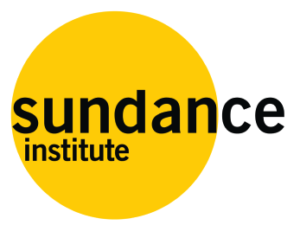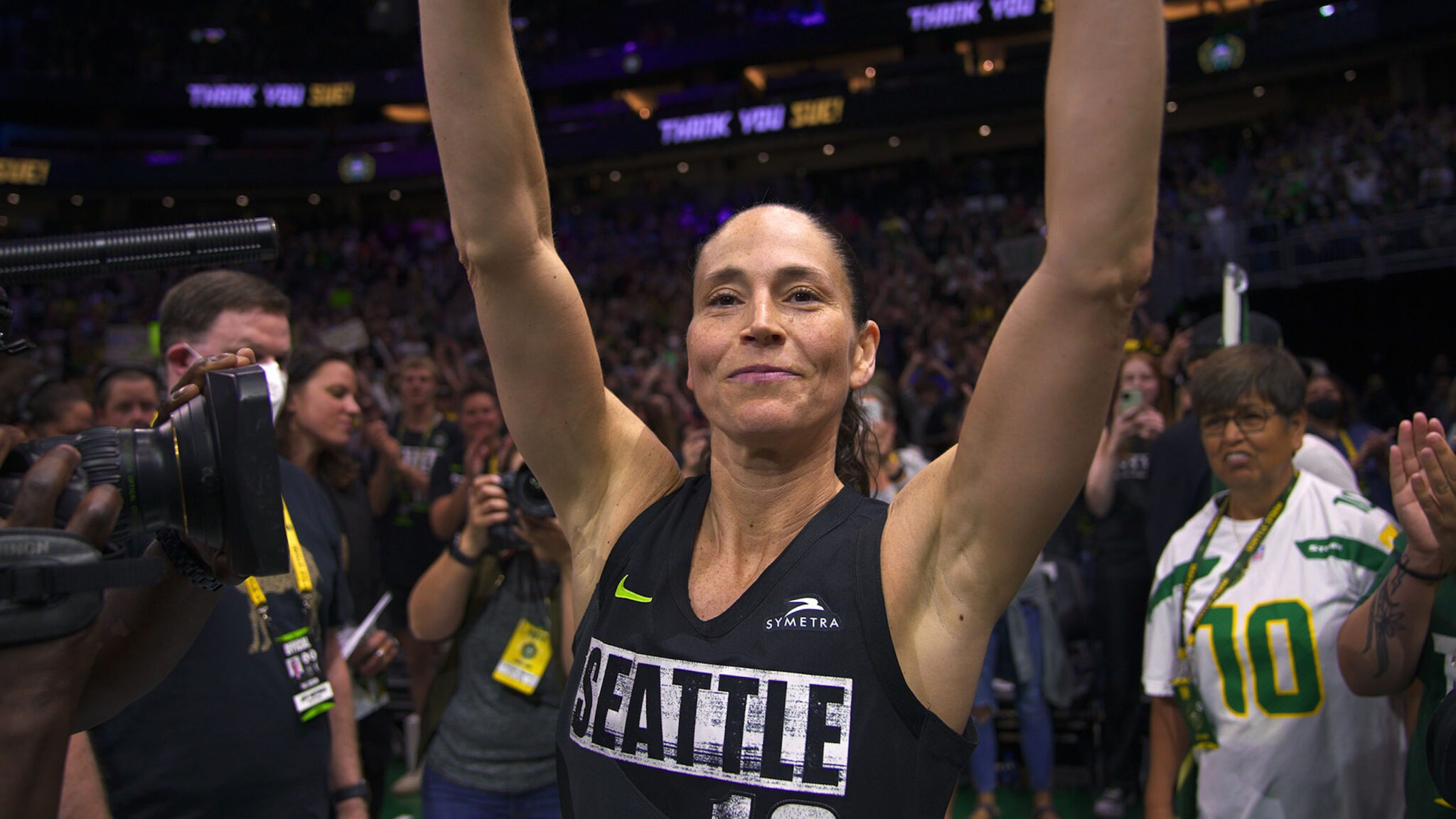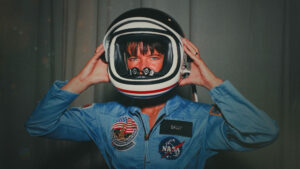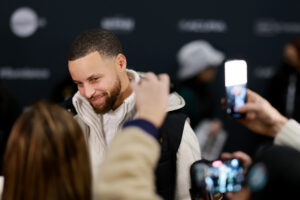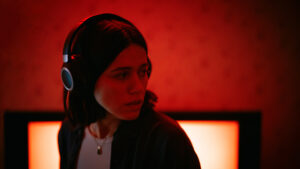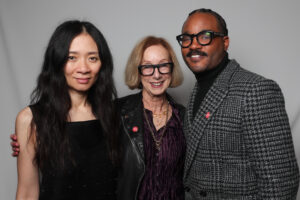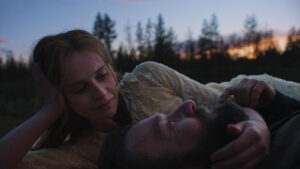By Lucy Spicer
One of the most exciting things about the Sundance Film Festival is having a front-row seat for the bright future of independent filmmaking. While we can learn a lot about the filmmakers from the 2024 Sundance Film Festival through the art that these storytellers share with us, there’s always more we can learn about them as people. This year, we decided to get to the bottom of those artistic wells with our ongoing series: Give Me the Backstory!
“Sue Bird is one of the most decorated players in basketball history — men’s or women’s. She should be a household name like LeBron James or Steph Curry,” says filmmaker Sarah Dowland. With five Olympic gold medals, four WNBA championships, and a slew of other accolades, Sue Bird had an undeniably impressive career before her retirement in 2022 — and Dowland is doing her part to tell the world about it with her documentary Sue Bird: In The Clutch, which screened in the Premieres section at the 2024 Sundance Film Festival.
“The film was an opportunity to tell more people about her prolific career and to show how she did it. Before Sue, there was no blueprint for having a professional career in women’s basketball spanning 21 seasons,” says Dowland. “The legacy of that is one of the greatest gifts to future generations of ballers.” But the film is about more than Sue’s athletic prowess. “I was intrigued by Sue’s personal journey off the court as well,” adds the director. “Through her journey as a leader and advocate for women’s sports, equality, and LGBTQ+ rights, we are showing her role in a larger global movement for female rights and recognition.”
Dowland’s resulting film is a dynamic sports doc about an introspective player — it’s part highlight reel, part meditation on advocacy and legacy. “In the making of this film, it was abundantly clear to me that Sue has broad appeal. Wherever she goes, boys and girls, dads, moms, ballers, regular folks, and celebrities all gravitate to her,” she explains. “This is a feel-good story about a person that will make you feel good. You don’t have to follow basketball or even be into sports to relate to her and her journey.”
Read on to learn more about Dowland, including her favorite part of making Sue Bird: In The Clutch and her top guiding principle for cinematic storytelling.
Why does this story need to be told now?
There’s a reckoning in women’s sports that’s long overdue. Sue’s career is evidence of the inequality, sexism, ageism, and lack of media coverage and investment that exists. Despite these challenges, Sue built a successful career and created a path for future generations of ballers.
It’s fun and exciting to watch women be competitive. Until it becomes the standard for girls and women to have equal opportunity and access to pursue sports and be recognized and compensated for what they do, we have to keep telling their stories and creating a historical record.
How do you want people to feel after they see your film?
You’ll be blown away by Sue’s shot-making. It’s ridiculous, in the best sense. Dime after dime. She is money on the court.
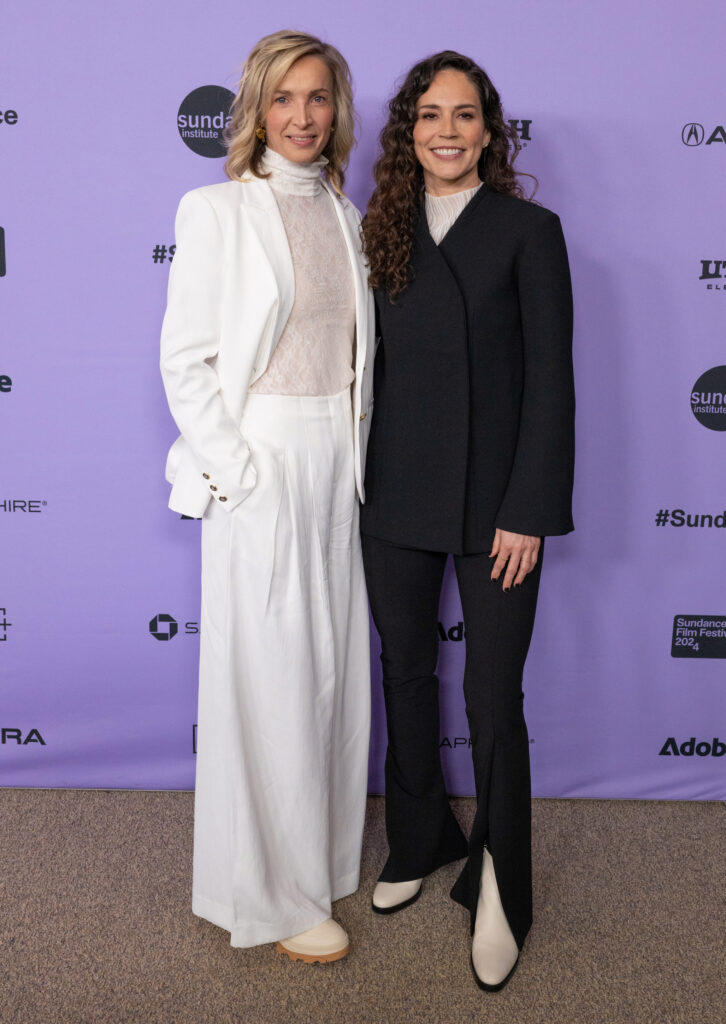
Be prepared to feel warm and fuzzy, because it’s impossible to not be inspired by Sue. She has more gold medals in basketball than any male player in history, and yet she’s so humble and approachable. A true point guard, her fingerprints are on everything on and off the court, and I hope the audience will be as curious as I am to see what comes next for Sue.
Your favorite part of making the documentary? Memories from the process?
The first time I met Sue, we filmed at her apartment in Seattle where she lives with Megan Rapinoe. Some friends and family were there also. It was intended to be a soft introduction to having me and a film crew hanging around. A huge championship ring (Sue’s fourth) had recently been delivered and was sitting next to a magnum of Champagne. I asked Sue where she kept all the other championship rings and gold medals, as they weren’t on display. In what I came to learn was typical of Sue, all that “hardware” was packed away in a cupboard. Thankfully her friends weren’t going to let her off the hook and insisted she go get them.
In that scene, which is in the film, everyone in the room (including the crew) was genuinely excited to see all these rings and medals. Some athletes stake their whole careers on getting just one of these, and Sue has so many!!! Even Megan is humbled by Sue’s athletic achievements! I knew in that moment that Sue was a quiet killer!
What was a big challenge you faced while making Sue Bird: In The Clutch?
Given the popularity and money given to documentaries about male athletes, even ones with far fewer achievements than Sue, funding the film was extremely difficult. The front-facing enthusiasm wasn’t supported by anything tangible.
Stories about female athletes are looked upon as monolithic, or their name is deemed to be not high-profile enough. Like pro sports, filmmaking is a business, and stories about women are still challenging to get made, even when there’s so much growth in audience engagement.
Having our film premiere at Sundance is so gratifying and gives us the opportunity to show commissioners the potential.
Tell us why and how you got into filmmaking.
I’ve always loved stories, especially the ones I made up!
I intended to be a journalist, but on enrollment day at university, the film kids looked cooler and more fun to hang out with, so I switched courses. My first job was as a PA on a documentary film about the Australian actor Ruth Cracknell, directed by Christina Wilcox. I loved the experience of working so intimately with Ruth and with a small crew. I was hooked.
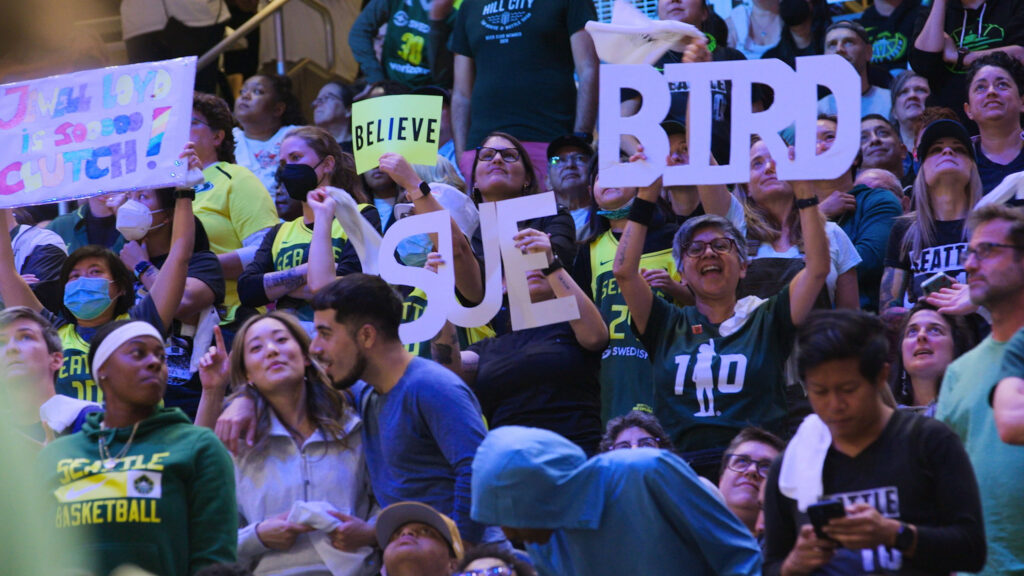
Why is filmmaking important to you? Why is it important to the world?
Films can serve as a reflection of the times, of the things we want to celebrate, spotlight, challenge, or expose. There’s so much creativity and power in that to move an audience, to compel action, and connect with our humanity.
I love getting lost in the world of a film, especially in a theater with an audience. Escapism is a wonderful thing!
What is something that all filmmakers should keep in mind in order to become better cinematic storytellers?
My rule of thumb is to keep asking if a scene progresses the story. I might include scenes in a film that don’t do that but instead play as a character revealing moment or provide the audience with a break or a chance to laugh. But I use that rule to establish the spine of a film. It helps tighten my storytelling.
If you weren’t a filmmaker, what would you be doing?
Can you be a professional petsitter? I love animals and travel so combining comfort with adventure would be amazing!
Films are lasting artistic legacies; what do you want yours to say?
Women and girls have so much untapped potential, not just in sports, but it is here that the inequality, sexism, and the lack of investment is so visible and public. The sports arena can serve as a stage — and sometimes a battleground — for the change we want to see in all aspects of culture.
The good news is that the landscape is shifting, albeit slowly at times. In women’s basketball, soccer and other sports, viewership and attendance is up and investment is increasing. There’s a long way to go but Sue’s story serves as a record of where the journey began and points us towards the potential that just needs to be untapped.
One thing people don’t know about me is _______.
I was married by Elvis.
Early bird or night owl?
My dog sees to it that I’m an early bird!
Who was the first person you told when you learned you got into the Sundance Film Festival?
I was alone in Brooklyn Bridge Park when I got the call from Kim [Yutani], so I think random strangers and birds probably heard me squealing first.
What’s your favorite film that has come from the Sundance Institute or Festival?
Valerie Faris and Jonathan Dayton’s Little Miss Sunshine is a film I can watch on repeat. I loved everything about Lee Isaac Chung’s film Minari. That film wraps itself around you with every frame. I also loved Crystal Moselle’s The Wolfpack. I was so engaged by the way she captured the inner world of the brothers. And Werner Herzog’s Grizzly Man was a devastatingly moving film. Ahhh there’s too many!!!
